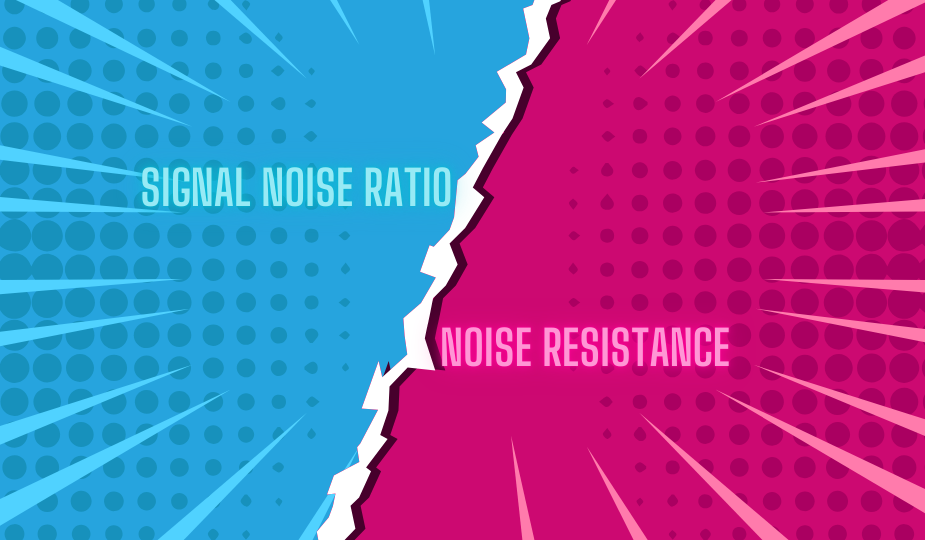
Wir bei ECMIC wissen, dass Kunden bei Mikrofonkapseln oft davon ausgehen, dass ein höherer Signal-Rausch-Abstand (SNR) automatisch auch eine höhere Störsicherheit bedeutet. Diese beiden Leistungsmerkmale sind jedoch nicht dasselbe.
Signal-Rausch-Verhältnis (SNR): Das SNR misst das Verhältnis zwischen der Stärke des reinen Tonsignals und der Stärke des Hintergrundrauschens und wird in der Regel in Dezibel (dB) angegeben. Je höher das SNR, desto besser ist die Klarheit des Tons. Für Mikrofonkapseln bedeutet dies, dass je höher der SNR ist, desto weniger internes Rauschen erzeugt wird, was zu einem saubereren Klang führt. Der SNR allein ist jedoch keine Garantie für eine hohe Widerstandsfähigkeit gegenüber externen Störungen.
Bei ECMIC konzentrieren wir uns nicht nur auf den SNR. Wir stellen sicher, dass jede Mikrofonkapsel, die wir herstellen, sowohl in Bezug auf die Signalklarheit als auch auf die Rauschunterdrückung ein Höchstmaß an Leistung erbringt. Hier ist, was Sie wissen sollten:
- Das inhärente SNR der Kapsel selbst. Dies dient als "Obergrenze" für das Gesamt-SNR der Kapsel.
- Schlechte Verpackung oder Filterung der Kapsel, was die SNR-Leistung verringern kann.
Was ist Lärmwiderstand?
Lärmbeständigkeit gibt an, wie gut die Mikrofonkapsel unerwünschte externe Störungen unterdrücken kann. Dies ist ein anderes Maß als SNR und wird von mehreren Faktoren beeinflusst:
- Die inhärente Störfestigkeit des Mikrofonchips: Unser koreanischer 2324-Chip zeichnet sich beispielsweise durch eine außergewöhnliche Widerstandsfähigkeit gegenüber Wi-Fi-Signalstörungen aus und gewährleistet eine stabile Leistung auch in schwierigen Umgebungen.
- Der Beitrag der Filterschaltung des Mikrofons: Bei ECMIC verwenden wir fortschrittliche LCR-Schaltungen, die bis zu 70% zum Rauschwiderstand beitragen, wobei Ferritperlen (L) eine der effektivsten Komponenten sind.
- PCB-Abschirmung: Unsere Leiterplatten sind doppelseitig kupferkaschiert und großflächig geerdet, was einen hervorragenden Schutz gegen externe Störungen bietet.
- Äußere Abschirmung des Gehäuses: Wir stellen sicher, dass der Kontaktwiderstand des Gehäuses weniger als 1Ω beträgt, um eine optimale Abschirmleistung zu gewährleisten.
- Abschirmung der Verkabelung: Um Interferenzen zu minimieren, verwenden wir bei unseren Mikrofonkonstruktionen verdrillte oder abgeschirmte Kabel.
Unser Know-how in Sachen Qualität und Langlebigkeit: Bei ECMIC konzentrieren wir uns nicht nur auf die Leistung der Kapsel, sondern auch auf die umfassenden Qualitätskontrollmaßnahmen während des gesamten Produktionsprozesses. Das zeichnet uns aus:
- Wir implementieren über 21 Parametertests um sicherzustellen, dass unsere Mikrofonkapseln den höchsten Qualitätsstandards entsprechen.
- Unsere Mikrofone werden 18 Kontrollpunkte für die Qualitätskontrolleund bietet Produkte, denen Sie vertrauen können.
- Die Fehlerquote für unsere Produkte wird streng kontrolliert und liegt bei weniger als 1 zu 1.000.
- Unsere MTBF-Durchschnittswerte (Mean Time Between Failures) weniger als 10 PPMund spiegelt unser Engagement für Zuverlässigkeit wider.
- Wir führen strenge Tests durch, wie zum Beispiel 12-Stunden-Alterungstests bei 80 °C, Falltests aus 1 Meter Höhe, Salzsprühnebeltests und Feuchtigkeitstests um die Stabilität unserer Produkte unter realen Bedingungen zu gewährleisten.
- Wir verwenden umweltfreundliche Rohstoffedie alle ROHS-zertifiziert sind und die Nachhaltigkeit und Sicherheit unserer Produkte gewährleisten.
Unsere Ergebnisse: High-Gain-Mikrofonkapseln können im Vergleich zu FET-basierten Kapseln aufgrund des höheren Stromflusses und des inhärenten Rauschens einen etwas geringeren SNR aufweisen. Diese High-Gain-Kapseln wurden jedoch speziell für eine hervorragende Rauschfestigkeit entwickelt, sodass selbst in unmittelbarer Nähe von Wi-Fi-Signalen keine Störungen bei der Aufnahme auftreten. Dies macht unsere Mikrofone zur perfekten Wahl für alle, die sowohl Klarheit als auch robuste Leistung in anspruchsvollen Umgebungen suchen.
Bei ECMIC erhalten Sie nicht einfach nur ein Mikrofon, sondern ein Produkt, das durch fortschrittliche Technologie, strenge Qualitätskontrollen und die Verpflichtung zu Spitzenleistungen bei jeder von uns hergestellten Kapsel unterstützt wird. Vertrauen Sie ECMIC, wenn es um die beste Mikrofonleistung und Haltbarkeit geht.


